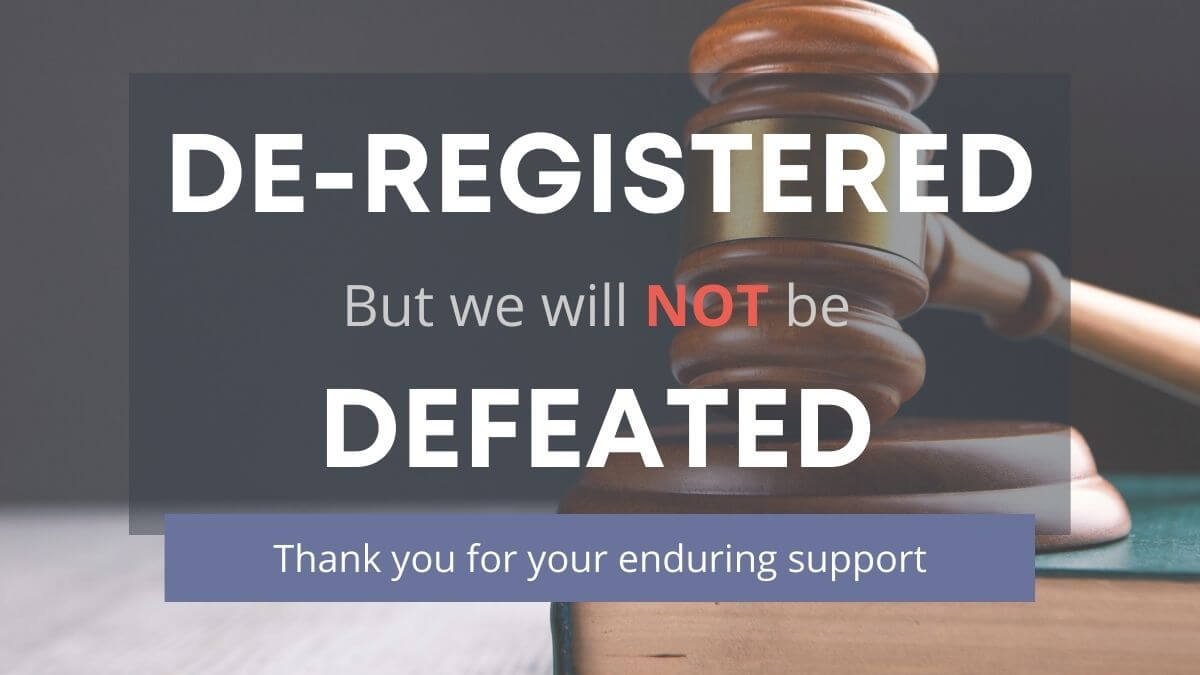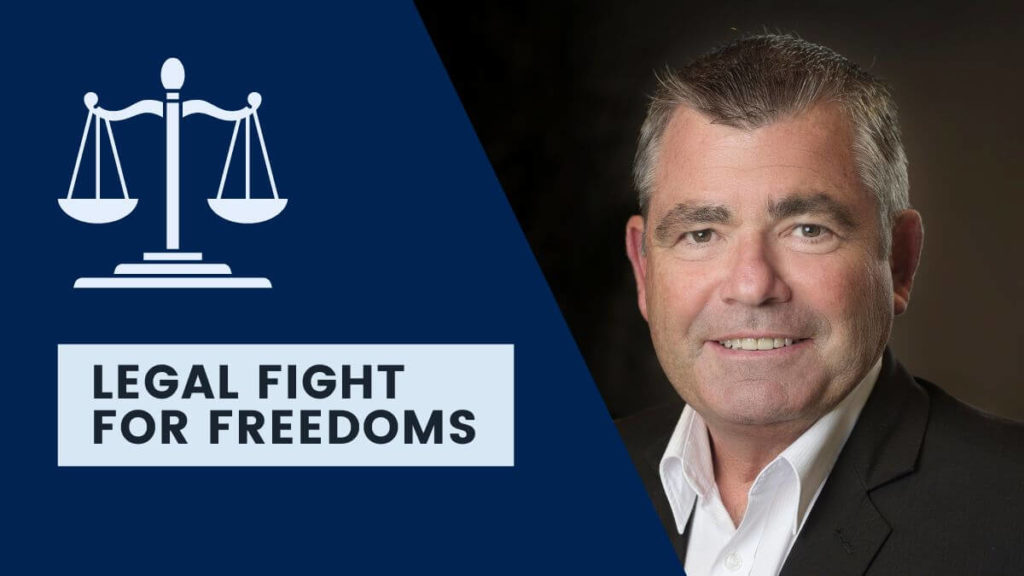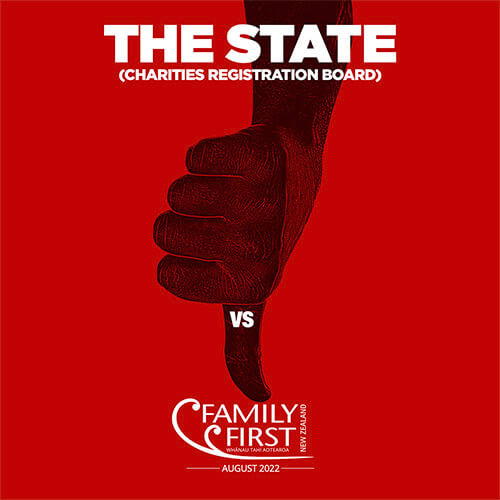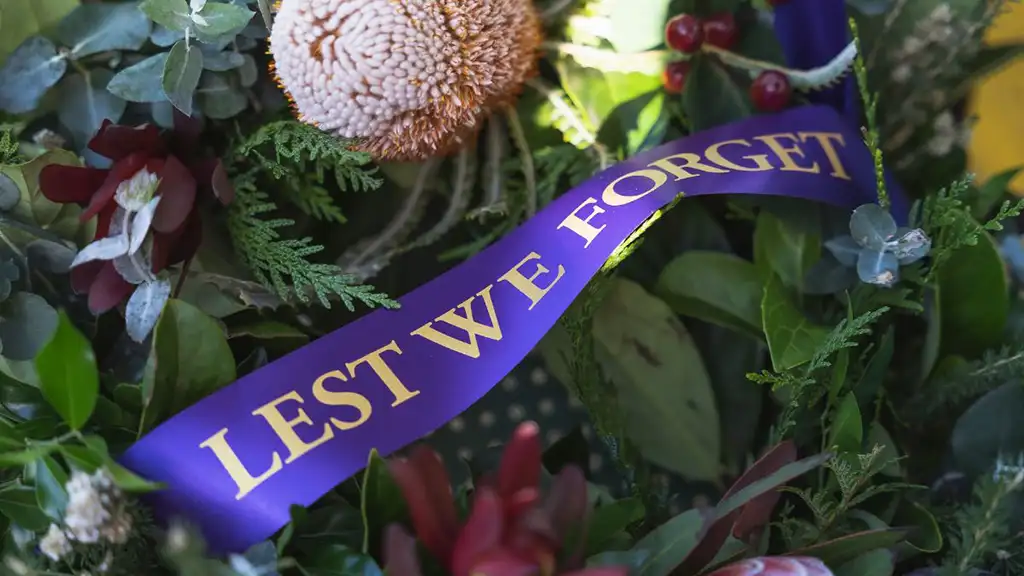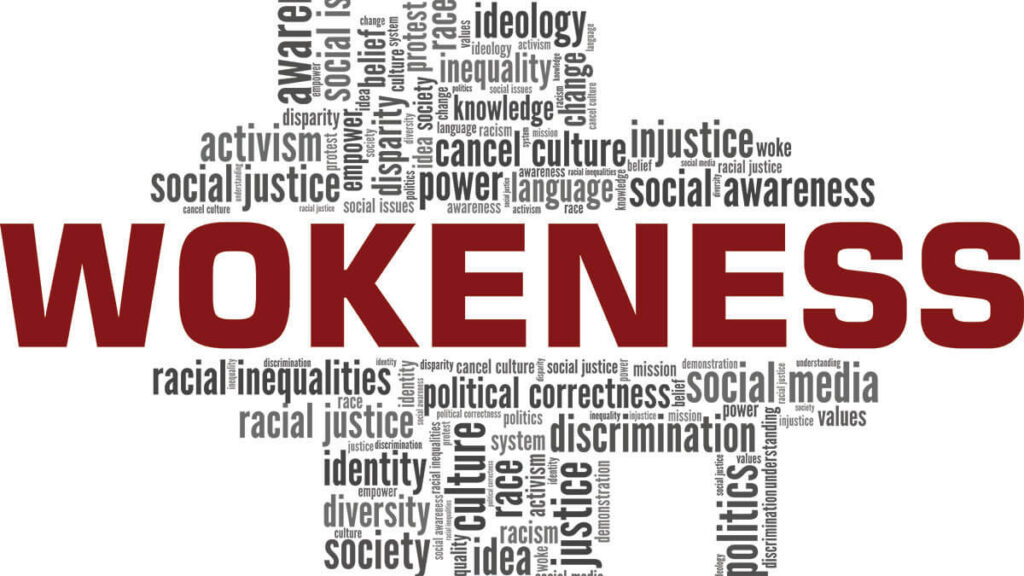Get the full report here…
A FULL SUMMARY OF EVENTS
Here is a summary of events relating to the deregistration of Family First NZ by the Charities Board.
MARCH 2010
The Charities Board undertakes a full audit of Family First and “confirms that the Trust continues to be qualified for registration as a charitable entity”. READ the Letter.
SEPTEMBER 2012
 The Charities Board informs Family First that they have been investigating the Charity and are going to recommend to the Board that Family First be deregistered. Reasons include:
The Charities Board informs Family First that they have been investigating the Charity and are going to recommend to the Board that Family First be deregistered. Reasons include:
- Research on the drinking age, daycare, marriage, and fiscal cost of family breakdown “could more properly be considered to be propaganda or indoctrination.”
- The annual conference Forum on the Family, “It appears the Trust has selected speakers that promote views similar to those of the Trust.” But speakers have included Sue Bradford, Phil Goff, John Key, the Children’s Commissioner amongst others!
- The billboards about eating dinner together as a family and about marriage are just “promoting Family First’s philosophy to the public“
- The ‘Value Your Vote’ brochure “encourages people to join Family First as a member“. Can’t charities encourage membership / supporters?
NOVEMBER 2012
As per 2010, Family First responds to their questions and claims, and are informed that they will receive the final response by January 2013 as to whether the Charities Board will continue to seek to deregister Family First.
APRIL 2013
 Family First NZ receives notification that the Charities Commission intends to deregister the charity, citing Family First’s traditional view of marriage being one man and one woman as one of the reasons for the de-registration.
Family First NZ receives notification that the Charities Commission intends to deregister the charity, citing Family First’s traditional view of marriage being one man and one woman as one of the reasons for the de-registration.
- “the Trust’s main purpose is to promote points of view about family life, the promotion of which is a political purpose because the points of view do not have a public benefit...”
- ““the Board considers that the Trust has a main purpose to promote the view that the “natural family” (defined by the Trust as the union of a man and a woman through marriage) is the fundamental social unit..”
- “the Board considers that the Trust’s opinion(s)…. are fairly described as controversial in contemporary New Zealand society“
[TIMING: It is significant to note that the investigation began just after the same-sex marriage debate started in 2012 (see reason below). The Commission appeared to deliberately hold off the notification until after the final reading of the same-sex marriage bill (April 2013), despite the Commission indicating that their decision would be made by January / February 2013.]
ONE COMPLAINT
Family First asked for additional documentation from the Charities Board under the Official Information Act. On the day that Family First presented a petition containing 50,000 signatures asking for the definition of marriage to be maintained as one man one woman, one person made a 2-sentence complaint to the Charities Commission. The basis of their complaint was:
“That (Family First) are a religious based pressure group whose whole (sic) purpose seems to be the prevention of human rights to non heterosexual (sic) people. I don’t see how the state should be supporting such an organisation by providing tax free status. EG, like Greenpeace.” READ the complaint.
In the period immediately following this one complaint, the Commission undertook a massive investigation which ultimately resulted in their attempt to deregister Family First.
BIAS
In the same month that Family First was notified they would be de-registered, the National Council of Women was re-registered. Whilst Family First completely agrees with their reinstatement, the reasons for the decision by the Charities Registration Board raises legitimate concerns about the bias of the Charities Board.
- NCWNZ is charitable because of its ‘promotion of the status of women’, including its reporting to the UN on discrimination against women
- As with Family First, the Board acknowledges that their research promotes their message. But Family First’s research is ‘propaganda or indoctrination’
- The Board refers to Greenpeace, and the Court of Appeal’s decision that the government supports the Nuclear Non-Proliferation Treaty and has enacted the New Zealand Nuclear Free Zone Disarmament and Arms Control Act, therefore the public good was evident. (This is a very dangerous basis to argue the definition of ‘charity’ because that means that if you are educating or researching on issues contrary to the view of the government, it will be argued that what you are doing is not for the ‘public good’. This is why Family First’s view on marriage has been a key factor in our de-registration.)
- The Board argues that any lobbying or submissions done by the NCWNZ is not ‘political’, but rather ‘a means by which the NCWNZ advances it charitable purposes’ – the complete opposite measure than that which was applied to Family First NZ.
It appears that views on gender equality and disarmament are acceptable and charitable – but certain views on marriage are not. The Commission has also admitted that only one charity who has been on the opposing side of the debates that Family First has been part of has been investigated – the Child Poverty Action Group which was investigated in 2010 and continues to qualify for registration, despite their obvious political advocacy. In fact, they were in the Court of Appeal (June 2013) taking on the government (political advocacy). And conservation group Forest and Bird – also a registered charity – were in the Environment Court (June 2013).
DECEMBER 2014
Despite the Greenpeace case decision (August 2014) where the Supreme Court found that political advocacy for a charitable undertaking was allowed, Family First received notification that the Charities Commission still wanted to deregister them.
JULY 2015
Family First NZ welcomed the decision in the Wellington High Court to allow its appeal against de-registration by the Charities Board. Justice Collins directed the Charities Board to reconsider its decision to deregister Family First in light of the judgement in the Greenpeace case and also this judgement.
In delivering his decision, Justice Collins recognised the strength of Family First’s argument that its advocacy for the concept “…of the traditional family is analogous to organisations that have advocated for the ‘mental and moral improvement’ of society.”
“…Members of the Charities Board may personally disagree with the views of Family First, but at the same time recognise there is a legitimate analogy between its role and those organisations that have been recognised as charities.”
Justice Collins also said that “..the Charities Board’s analysis that Family First’s advocacy role is “controversial” and therefore not self-evidently of benefit to the public will need to be reconsidered.”
APRIL 2017
Family First NZ receives notification that the Charities Board still intends to deregister the charitable organisation despite the decision in the Wellington High Court in 2015 to allow Family First’s appeal against de-registration. The notice says:
(W)e do not consider that the Trust continues to qualify for registration as it has an independent purpose to promote and protect the traditional family and this is not charitable.”
The Board confirms this action in August saying that it will remove Family First from the Charities Register on 18 September 2017.
SEPTEMBER 2017
Family First NZ lodges an appeal in the Wellington High Court against the Charities Board’s attempts to deregister the group. Family First is also granted an interim order against the Board restraining them from removing Family First from the Register until the appeal is heard.
SEPTEMBER 2018
 In a reverse decision to the 2015 decision in the same court, the Wellington High Court upholds the Charities Board’s decision to de-register Family First as a charity. The High Court says that: “In relation to marriage, Family First’s model, to the extent it involves law change favouring the traditional family unit, would on its face run counter to human rights law which prohibits discrimination on such bases. Unless able to be shown to be a reasonable limit, the position advocated for would be unlawful, an obstacle to charitable status.”
In a reverse decision to the 2015 decision in the same court, the Wellington High Court upholds the Charities Board’s decision to de-register Family First as a charity. The High Court says that: “In relation to marriage, Family First’s model, to the extent it involves law change favouring the traditional family unit, would on its face run counter to human rights law which prohibits discrimination on such bases. Unless able to be shown to be a reasonable limit, the position advocated for would be unlawful, an obstacle to charitable status.”
Family First does not accept the High Court’s analysis or its conclusions and lodges an appeal with the Court of Appeal. An order is subsequently made by the Wellington High Court that the Charities Board maintain Family First’s registration as a charity until its appeal against deregistration is heard in the Court of Appeal.
AUGUST 2020
Family First NZ won their appeal in the Wellington Court of Appeal against de-registration from the Charities Register.
“JUDGMENT OF THE COURT
A The appeal is allowed.
B The decision of the Charities Registration Board dated 21 August 2017 to remove Family First New Zealand from the Charities Register is set aside.
C There is a declaration that Family First New Zealand qualifies for registration under the Charities Act 2005.”
Key Statements from the Court of Appeal Judgement
(which is now being appealed by the Charities Board)
Para 73: “The Universal Declaration of Human Rights, and other similar instruments, affirm a right to family life. That provides considerable support for the proposition that Family First’s support of, education about, and advocacy for, the family and its related institution of marriage may, other things being equal, be charitable.”
Para 92: “[As] Paul Rishworth QC has observed: “Our political systems depend upon our deliberating as a community. Our understanding of the world comes by seeking information and transmitting it to others.”
Para 109: “An examination of this material, set in the context of advancement of education and research, shows Family First’s clear purpose of stimulating a public debate and participating in public discourse on important social issues relevant to families.”
Para 122: “Such research is valuable in promoting public knowledge about marriage and families and the many issues that affect the family. Public discussion and debate about such important issues is desirable to encourage the development of related policies and laws.”
Para 136: “The end promoted by Family First is the support of marriage and family or core family values. This is an abstraction not dissimilar to the examples given in Greenpeace of world peace or nuclear disarmament. As already analysed, Family First seeks to educate and conduct research.”
Para 147/148: “It would be curious if promotion of what the Board called the “traditional family” would cease to be of public benefit because there is a growing acceptance of other forms of stable family life, including within whānau and hapū relationships. And to be fair, Family First recognised the contribution non-traditional forms of family life can make.”
Para 164/165: “We consider Family First’s engagement in the deliberations of the community on issues such as abortion, assisted death, anti-smacking laws, prostitution reform and censorship is properly characterised as part of its broader purpose of supporting marriage and family as being foundational to a strong and enduring society. Any attempt to label such engagement generally as cause advocacy of a political nature is not helpful.”
Para 180: “Nor is there any suggestion that Family First engages in unlawful activities, such as the types of non-violent direct action at issue in Greenpeace.”
DECEMBER 2020
The Supreme Court today announced that they will allow the Government to take Family First to the Supreme Court to appeal the recent Court of Appeal decision upholding Family First as a charity. https://www.courtsofnz.govt.nz/cases/attorney-general-v-family-first-new-zealand
JUNE 2021
The case is heard in the Supreme Court. The five judges reserve their decision.
28 JUNE 2022
The Supreme Court rules that the Charities Registration Board was correct to resolve that Family First be de-registered. The declaration made by the Court of Appeal that Family First qualifies for registration under the Charities Act is set aside.
You can read the full (long) decision of the Supreme Court HERE and the accompanying media release HERE. The most significant statement is where the Court rejects our view of marriage…
“We agree with the High Court Judge that an object of promoting the family as foundational to a stable society could be a charitable object. But we do not agree with the Court of Appeal majority that Family First’s advocacy of the role and importance of this particular version of the family and of marriage between a man and a woman is self-evidently beneficial in a charitable sense.” (para 91)
Oh dear. The ideology immediately comes through. They disagree with our view – a view that most of society held until about five minutes ago. What other views will become ‘uncharitable’ sometime soon? The definition of a woman?
In the Supreme Court’s media release which summarised the judgement (and the media quoted primarily from this – it is uncertain whether they read the whole judgement), it said:
“Family First believes that the traditional marriage (a permanent union of man and woman) is the best model for delivering the societal benefits associated with stable family life. It puts these principles into operation by, among other things, commissioning research reports, proposing legislative reforms aligning with its views, hosting conferences, and collating information on its website…”
“First’s purpose (exhibited by its trust deed and activities) crossed the line between education and advocacy. Its research reports lacked the balance that is required to further an educative purpose. By publishing research reports, hosting conferences, posting information on its website, and suggesting law reforms, it sought to advocate for the adoption of its views concerning the traditional family…”
There’s two problems with these paragraphs.
All charities both educate and advocate. The Helen Clark Foundation, Drug Foundation, Child Poverty Action Group, Greenpeace, Amnesty International, Save Animals from Exploitation (SAFE), National Council of Women – we all advocate a viewpoint. Both the Helen Clark Foundation and the Drug Foundation tried to advocate for the legalisation of cannabis in the recent referendum. (Fortunately they failed!) And we’re sure you know what Greenpeace’s opinion is on certain issues!
But secondly, the statement ignores the huge amount of research Family First has done on issues which have nothing to do with family structure e.g. the health harms of pornography, screentime, childcare, gender identity, fertility rates, family dinners, censorship, prostitution, child abuse, and many other issues.
The court also says:
“Supporting the family and marriage is not a purpose beneficial to the community and charitable by analogy to previously recognised purposes. Family First’s purpose is to advocate. Although Greenpeace opened the door for advocacy-based purposes in limited situations, Family First did not satisfy the criteria. It advocated a particular version of the family, being the traditional man-woman marriage. Its purposes are discriminatory — it advocates for measures to prefer the traditional family to the disadvantage of others…”
No – we simply present evidence that argues that family structure matters – and that marriage matters. In our view, the research is clear and overwhelming. If they disagree, simply put up the research that proves us wrong. Debate the issue. Don’t shut it down.
But what are the “limited situations” where advocacy is cool?
Here’s the telling bit:
“Family First’s engagement with issues such as abortion, assisted dying, prostitution and censorship were not subsets of its wider purpose of supporting marriage and family. They are free-standing political objects about which there are differing views in society. For such issues, it is not possible for the Court to determine whether the views promoted are publicly beneficial or otherwise charitable. This differs from advocacy for ends like human rights and protection of the environment which Greenpeace held were themselves charitable ends. Family First’s advocacy on the above issues was not ancillary to its expressed purpose of supporting marriage and family…”
This is the key point to understand. The court is saying that the religions of ‘human rights’ (including sexuality and gender) and ‘environmentalism’ are acceptable things to advocate for, but to present and use decades of research proving that family formation and structure matters is unacceptable and apparently discriminatory.
Finally, one of the Justices (Williams J) was very critical of us – although it’s important to note that this view was not shared by the other four Justices. He said:
“To help guide future decision-making, Williams J suggested that “selflessness” can operate as a touchstone. Substantially self-regarding purposes should not, in principle, be charitable. Using that approach, Williams J agreed Family First did not qualify as an educational charity. One-sided promotion of personally held views detracts from the cohesiveness of our pluralistic society and disempowers the receiver by failing fairly to inform them of alternative viewpoints on the subject. Family First’s promotion is self-referential; it is not about community.”
With due respect, this is confused thinking. There is no “selfishness” in doing research and advocacy to strengthen families, encourage marriage, respect the sanctity of life, and protect freedom. As already stated, every charity is promoting their cause – their view. On this measure, every charity should be deregistered if they have a view and promote that view. “Pluralistic society” is a buzzword with no specific meaning, but what it does do is simply reinforce that there will be differing views that deserve debate.
“Advocating for controversial ideas or causes may be charitable where the group addresses the issue in a balanced way. Honesty and respect in debate is not self-referential. But Family First’s advocacy is not fair, balanced or respectful, so its advocacy is not charitable…”
We completely disagree. In fact, we challenge Williams J to give evidence of his claims. He may not agree with our opinion – but his character assassination is highly subjective, and is itself “not fair, balanced or respectful” in our opinion.
We know and trust that you as our supporters would call us out immediately if we were guilty of any of these accusations.
Our research reports have never been proved to be factually incorrect. Opponents simply disagree with them – which they’re entitled to do. We would argue that most of the reports out of the Helen Clark Foundation and the Drug Foundation haven’t been fair or balanced either!
WHAT OTHER GROUPS OPERATE LIKE FAMILY FIRST?
Current registered charities who also do political advocacy:
Helen Clark Foundation (campaigning to legalise cannabis)
NZ Drug Foundation (campaigning to legalise cannabis)
Child Poverty Action Group
Amnesty International New Zealand Inc
Save Animals From Exploitation (S.A.F.E.)
The Vegan Society of Aotearoa
ASH New Zealand Incorporated
National Council of Women
Rainbow Wellington
Humanist Society of NZ
Human Rights Action Trust Aotearoa / New Zealand
Human Rights Foundation Of Aotearoa New Zealand
Save the Children
Royal Forest and Bird Protection Society of New Zealand Inc
Action For Children And Youth Aotearoa
Caritas Aotearoa – New Zealand
Human Rights In Education Trust
Human Rights Network of Aotearoa/ New Zealand Trust
International Shia Cultural and Human Rights Organization
Youth For Human Rights (NZ) Incorporated
Waves Trust
Agender Christchurch Inc
Animal Welfare Institute of New Zealand
Q-Topia Incorporated
Groups who opposed Family First during the anti-smacking debate
EPOCH
Te Kahui Mana Ririki
UNICEF
New Zealand National Committee For Unicef Trust Board
Groups who opposed Family First during the ‘gay marriage’ debate
QSA Network Aotearoa
Waikato Queer Youth
Rainbow Youth Incorporated
Family First does NOT believe these groups should be deregistered. We simply ask for a level playing field and equal treatment.
WHAT DO THE POLITICAL PARTIES SAY ABOUT THIS ISSUE?


AUSTRALIA
In December 2018, the Australian government accepted a recommendation from the Ruddock review into religious freedom to amend their Charities Act to ensure that groups who say marriage is between a man and a woman are not stripped of their charitable status. The Ruddock Review said: “The Commonwealth should amend section 11 of the Charities Act 2013 to clarify that advocacy of a ‘traditional’ view of marriage would not, of itself, amount to a ‘disqualifying purpose’.
HOW DOES THIS AFFECT FAMILY FIRST?
It doesn’t, really. We will continue researching, educating and advocating in exactly the same way as we have done for the past 16 years. If anything, it means we no longer have to be cautious about the level of political advocacy we do. The gloves are off!
HOW ABOUT FINANCIALLY?
Losing our status as a registered charity means that donations made to Family First will no longer qualify for the Donation Rebate. That’s a disadvantage for our generous donors, but based on all the feedback yesterday, the loss of the Rebate will make no difference to most people when determining how much to invest in our work – and in fact, many of you have made new or increased commitments.
SUMMARY
The real question is whether the Government will pursue other charities who operate in a similar fashion and do political advocacy – and who Family First have possibly engaged with during social debates such as cannabis legalisation, but are from the left wing side of political discourse. Will they now be targeted? We believe they won’t. The state approves of their views.
This decision reveals just how far the state is overreaching their control and power to attempt to shut down free speech and certain points of view that it doesn’t like.
Family First will not be silenced and will continue to represent and be a powerful voice for families, faith and freedom, and advocate on behalf of the thousands of families who support us.
Thank you to the (literally) thousands of you who have responded with words of encouragement and with financial support over the past 10 years and four court cases.
READ Bruce Logan: Defending the family declares an authority above the state
Deregistering Family First would affect much more than just one charity
